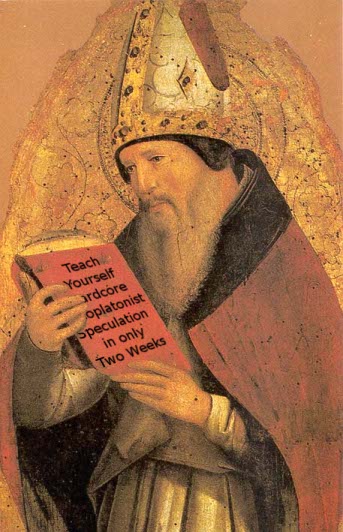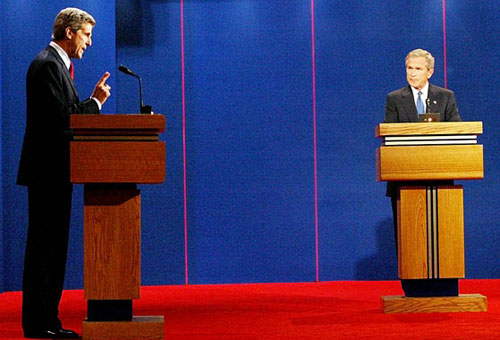podcast 186 – How to tell whether Christians and Muslims worship the same God – Part 2
Applying the methodology… can we answer the question?
Applying the methodology… can we answer the question?
The scene, an American evangelical church, around Christmas time. The pastor prays, Heavenly Father, than you so much for sending us your Son! We’re so grateful for your perfect of gift of forgiveness, of eternal life. Help us, this season, to remember the reason for it. God, thank you for coming to be born, to die for us. In your name we pray, amen. At… Read More »a present you should return: Christmas confusion

Blame a lot of MMM on this guy – the Hip’ster.
I feel some need to explain and justify what is going on here, as I have divided loyalties.
On the one hand, the stated purpose of the blog is to make recent research on trinitarian theories available to the wider public, in relatively brief, understandable, jargon free form.
On the other hand, this blog’s most faithful readers and commenters are specialists in medieval philosophy & theology, or in recent analytic philosophy of religion, and they can really get into dialogging in the way that PhDs (and to-be-PhDs) in these fields do – which is to say – highly abstract, jargon filled, argument-heavy discourse, that only a scholar can love. Being a scholar, of course, I love it, and have no desire to stem their exploration of historic trinitarian theories. They are all, in various ways, doing cutting edge work, and I learn a lot by listening in, and by joining in. And I know that other philosophy profs appreciate these discussions as well.
My solution? Have it both ways. 🙂 I just want to try to build a bridge for non-academic readers, to help them, maybe, be able to get something out of this recent Medieval Metaphysical Mayhem (MMM). So I’m going to try to give some relevant background information.
Here goes: Read More »MMM unleashed @ trinities
In this episode, the final half of my debate with Roman Catholic apologist Mr. William Albrecht. The question: was Tertullian a trinitarian? (Part 1 is here.) First, we take turns cross-examining one another, and then the closing arguments. I’ve shortened the audio here, but have not cut any meaningful content at all. Who makes the better case? As Fox News says, we report, you decide.… Read More »podcast 34 – Albrecht vs. Tuggy debate – Was Tertullian a trinitarian? Part 2
Closing statements: Finnegan: 1:48:43- 1:52:12 Only one Yahweh. Jesus does things God says he can’t do, e.g. die. Jesus affirms Shema. In John 10, Jesus uses a concept of “representational deity” – i.e. calling a being who isn’t God “God” because of some likeness to God in some respect(s). Trinity is confusing, post-biblical. But it is a solution to a non-existent problem, namely, of their… Read More »Trinitarian-Unitarian Debates – 1 Bosserman vs. Finnegan, 2008 – Part 5
Bosserman questions Finnegan: 1:36:20 B: Did OT saints understand that the physical Temple would be replaced by Jesus? F: No. B: So does the NT contradict the OT on this? F: Incomplete vs. contradictory claims. B: What about Deut 12? F: Like you, I think it doesn’t predict an unending physical temple. B: Why can’t God then only later reveal himself to be not only one… Read More »Trinitarian-Unitarian Debates – 1 Bosserman vs. Finnegan, 2008 – Part 4
Time for mutual interrogations! This is the best part of this debate.
Finnegan questions Bosserman: 1:24:35 – 1:36:19
 Sean Finnegan is an intelligent and well spoken “Biblical Unitarian” Christian. He recently earned an M.A. in Church History from Boston University. He runs the christianmonotheism website, which aggregates work by contemporary Christian unitarians. I was pleased to meet him at a recent conference, at which he gave a fascinating presentation on how many (but not all) “church fathers” rejected the everlasting earthly Kingdom in favor of “going to heaven,” i.e. a non-bodily afterlife.
Sean Finnegan is an intelligent and well spoken “Biblical Unitarian” Christian. He recently earned an M.A. in Church History from Boston University. He runs the christianmonotheism website, which aggregates work by contemporary Christian unitarians. I was pleased to meet him at a recent conference, at which he gave a fascinating presentation on how many (but not all) “church fathers” rejected the everlasting earthly Kingdom in favor of “going to heaven,” i.e. a non-bodily afterlife.
Here’s a blog post by Sean on the debate I’ll be reviewing below.
Brent Bosserman was at the time of the debate an adjunct professor at Northwest University in Washington state. I believe he’s still there, but can’t find out much about him online. But here’s a long 2007 talk of his, called “Christianity and Trinitarian Worldview.” He talks at the start about his background.
This debate suffers by not having a precisely defined debate question. While Finnegan mostly sticks to the biblical case for his view and against Bosserman’s, Bosserman pulls out a broad brush and tries to compare all-encompassing “worldviews.” This is not a good idea; a debate is finite in time!
The intros are over-long and intrusive here; I’ve skipped you to the actual start. My summaries and commentary follow.

“All we need is one substance to cure the ills of our society!” “I have personal experience with substance abuse, and it is wrong.”
Before I start a mini-series on the Trinitarian thought of Henry of Ghent, I thought it would be good to offer a brief survey of the late 13th c. landscape. This is way too brief and fairly focused, but hey, you’ve got to start somewhere. As the scholastics would say, you cannot will to do something, unless you have some sort of knowledge. No voluntary action without knowledge, however imperfect or confused that knowledge is! (As an aside: Jean-Luc Marion, a contemporary philosophical-theologian and former student of Jacques Derrida contests this medieval Aristotelian claim, and argues that acts of will –i.e. to love- does or can precede any knowledge.)
Of all the issues to discuss about the Trinity the one at hand here is the question: what causes or explains why the divine persons are really distinct from each other? We know there are three persons, and one ‘substance’/’ousia’ from Scripture and our orthodox Creeds, but is there anything that we could say that might account for why there are three, and not say five divine persons? Or even, why not say there is a potential infinity of divine persons (on some contestable account of the deification of believers)? You get my point. Why three divine persons and what makes it that there are three, no more and no less?
Dale’s Swinburne Trininty chart, version 2.0. (or 1.1 – whatever) Thanks to reader (and Swinburne student) Joseph Jedwab for the correction. He points out: [Swinburne] wants to avoid the idea that the Spirit’s existence is causally overdetermined [i.e. that it has two complete causes, either of which would alone suffice]. But he also wants to avoid the idea that each actively only partly causes the… Read More »Swinburne’s Social Trinitarian Theory, Part 4 – the cooperation involved in procession or spirating
Two installments ago, we looked at Brian Leftow’s setup of the issue, and last time we surveyed his distinctive “Latin” trinitarian theory. This time, we’ll wrap it up. A rather obvious and potentially serious objection to Leftow’s theory is that it makes the doctrine of the Trinity out to be modalism, for plainly, in his view, each of the Persons is a mode of God… Read More »Leftow 4: “A Latin Trinity” – Part 3
This time, another great Christian thinker, who I discovered some time around 1998.
God can’t be “perfect in love” unless he is multipersonal?
Marcellus’s theology is a key to understanding the post-Nicea controversies.
Did fourth century Christians come to a consensus about “the doctrine of the Trinity”?
At his blogs Ben Nasmith has been writing so very good posts weighing trinitarian vs. unitarian theologies, and in particular thinking about Richard Bauckham and Samuel Clarke. In Monotheism and the unitarian-trinitarian dilemma he concludes, I think rightly: to answer this question we need a clear understanding of the monotheism of the Bible. That links to a post at his other blog, THE “HERESY OF CLARITY” –… Read More »Ben Nasmith on ancient Jewish monotheism
 John Biddle (1615-62) (also spelled “Bidle”) has been called “the father of English Unitarianism.” (But he didn’t use the word “unitarian” – that had yet to be coined, as a more descriptive, less polemical alternative to “Socinian.”) When he taught his theology publicly, he ran afoul of the the law, and eventually died in jail, imprisoned for his beliefs.
John Biddle (1615-62) (also spelled “Bidle”) has been called “the father of English Unitarianism.” (But he didn’t use the word “unitarian” – that had yet to be coined, as a more descriptive, less polemical alternative to “Socinian.”) When he taught his theology publicly, he ran afoul of the the law, and eventually died in jail, imprisoned for his beliefs.
Here are three of the six articles of his A Confession of Faith Touching the Holy Trinity, According to Scripture. (1648, reprinted in a 1691 book, itself reprinted in 2008.) I have modernized his spelling and use of capitals and punctuation, and have added emphases in bold.
Article I: I believe that there is one most High God, creator of heaven and earth, and first cause of all things pertaining to our salvation, and confessedly the ultimate object of our faith and worship; and that this God is none but the Father of our Lord Jesus Christ, the first person of the Holy Trinity. (p. 1)
Article II: I believe that there is one chief Son of the Most High God,Read More »John Biddle’s unitarian confession of the Holy Trinity